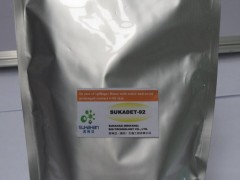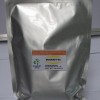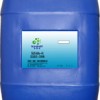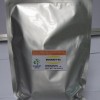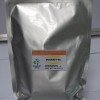SKHZYE C3008/SLW
sewage treatment plant to deal with specific bacteria filter mud
Description:
SKHZYE C3008/SLW is a microbial product, a combination of high concentrations of beneficial non-pathogenic microorganisms, and add a variety of macromolecules that can break down a variety of enzymes, a unique formula, with anaerobic and aerobic in nature and more functional species. Microorganisms in the product produced during the growth and reproduction of digestive enzymes to break down the municipal wastewater treatment plant discharges filter mud contains large amounts of organic waste and sludge to remove the stench of the smell, decomposition products and by oxidation, reduction and hydrolysis reaction is further converted, and finally is converted into organic fertilizer.
Working Mechanism :
filter mud, organic matter
NH4 + , H2S other
NO2-, SO32- , etc.

filter wastewater treatment plant sludge contains large amounts of organic matter, fiber, lipids and a large number of inorganic elements are required for microbial growth substances, SKHZYE C3008/SLW the microbial decomposition of these substances into the crop which can be use of small molecules, carbon dioxide and water.
fermentation microbial flora of the added speed and efficiency can improve the decomposition, because these bacteria is the result of selection, domestication, cultivation and improvement of the high concentration mixture of bacteria and fungi. These strains were chosen to better survival and reproduction, while producing enzymes, decomposition of organic waste generated in the composting process and thus speed up the decomposition of organic matter.
decomposition of lignocellulosic biomass is the first open standard concept of fiber structure so that sugar can be used for different microbial metabolism. Microbial use of cellulase, xylanase, a- amylase, protease enzymes break down lignin from cellulose, hemicellulose, protein, starch and other carbohydrates release sugar to the compost. Target the growth of bacteria in the compost enhanced, can effectively inhibit bacteria growth, thus preventing odor and bacteria and other harmful substances.
advantages:
l decomposition of organic waste in the trash for waste reduction;
Removal l
smell the stench of sewage sludge
l by fermentation of sewage sludge used as a filter or a vegetable farm bio-organic fertilizer.
beneficial microbes in compost:
l composting process using beneficial microorganisms and higher animals living body to break down industrial, urban and agricultural waste organic matter.
l organic solid waste in the composting process can also be the method is through biological decomposition. The process of organic solid waste is aerobic, moderately thermophilic addicted to microbial decomposition.
l composting process is a microbial process, can organic waste into stable, health, type of product in order to improve soil humus composition.
l compost through the natural microbial flora of the inherent added after screening, domestication, cultivation and improved with better survivability and faster reproductive capacity and the ability of enzyme production, highly concentrated beneficial bacteria, will enhance the decomposition of organic matter.
l effective combination of beneficial microorganisms for composting will significantly reduce the fermentation time.
Description:
Bacterial numbers : 3 × 108 CFU / g
Appearance:
light brown powder
smell:
slightly fermented flavor
effective pH: 6.5 - 8.0
use dosage :
1. in the sludge with 1 / 3 of the crushed wheat straw, corn stalks and other objects, and mix well;
2. ton (wet to dry tons) of raw materials used in filter mud, 1,000 grams of the product;
3. will filter mud piled high around 1.2-1.5 m , wide 2 m ;
4. points when the compost temperature is reached when the 60-65
Total: 0 [Show All] Related Reviews

